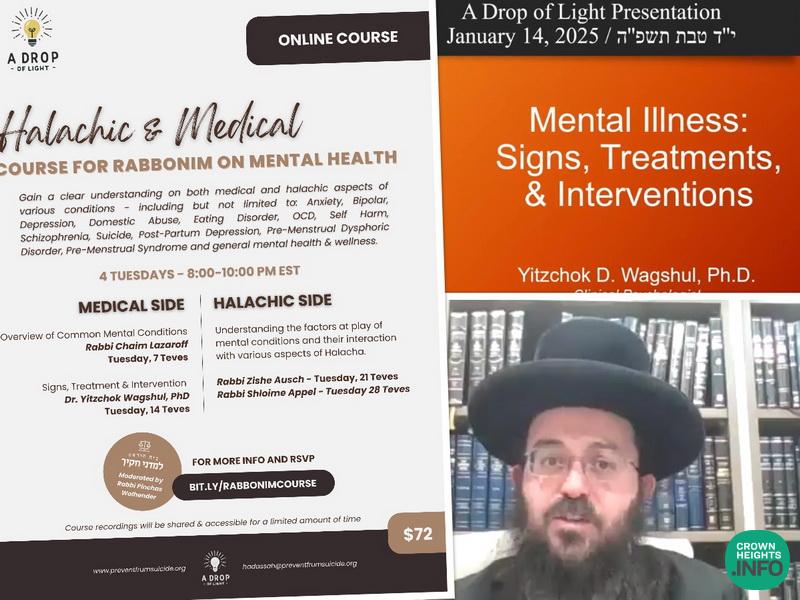
A Drop of Light Holds Course For Rabbonim on Mental Health
When it comes to calling a rav with a shailah, you probably know who is the best one to call for questions regarding kashrus, shabbos, taharas hamishpacha, and other common circumstances. But what about when your question involves mental health? Do you know who to call to ask about OCD, eating disorders, warmlines, and suicide?
Boruch Hashem, as frum yidden, Rabbonim play a key role in all aspects of our lives. As the conversation around various mental health conditions becomes louder and more open, these same Rabbonim need to have the awareness, knowledge, and tools to answer questions in this realm.
Recognizing the need for Rabbonim across the frum world to be confident and knowledgeable in the areas where mental health and halacha coincide, A Drop of Light, in conjunction with the Beis Horaah Lamdeini Chukecha, organized a one of a kind training course.
This course, open to Rabbonim only, spanned four weeks, during which participants gained a foundational understanding of both the medical and halachic sides of mental health.
To start off, Rabbi Chaim Lazaroff, a Mental Health First Aid instructor and Chabad Shliach in Uptown, Texas, gave a crash course on multiple conditions, including depression, anxiety, eating disorders, suicide, and more. The Rabbonim left this first class understanding that they are often in the front lines of realizing that someone might have a mental health condition, what the definition of these conditions are, and some of the warning signs to notice that someone might be struggling.
The second week was “Signs, Treatments, and Interventions” with Dr. Yitzchok Wagshul, Ph.D, a psychologist based out of Brooklyn who has many years of experience in the mental health field, including as a published author. Dr. Wagshul’s class built upon the foundations that Rabbi Lazaroff set, further expounding on exactly how these conditions present themselves, how they are treated, and how Rabbonim can spot them. In order to give a proper psak of what one can and cannot do in various situations, the Rabbonim needed this clear understanding of exactly what they are dealing with and why certain treatments are used.
The next two weeks transitioned into practical halachic applications of what was learned in the first two weeks. Rabbi Zishe Ausch, Dayan when it comes to medical related shailos, and Rabbinic adviser for the Refuah helpline, started off with a broad overview of how to approach mental health struggles when it comes to piskai halacha. The next week, Rabbi Shloime Appel, rav of Khal Hadras Kodesh Svoliva and well known dayan, gave more information on how to view mental health and how to read between the lines when it comes to answering shailos. He also presented practical examples of shailos that he received, primarily in the realms of OCD and depression.
Boruch Hashem, the fifty plus Rabbonim who signed up for this course walked away with an increased understanding and level of comfortability when it comes to mental health and halacha.
“Thank you very much! It was very enlightening, very important information and it was nice to get a crash course, literally, on things that take years to learn” – Rabbi L. Hecht, New York
“We need this more often, tremendous clarity. I loved every session, each one from a different perspective. Thanks for the presentation with clear directions from a Posek.” – Rabbi Y. Weiss, New York
“It was very enlightening and gave a good perspective and mindset which is important for one who takes shailos to have in mind” – Rabbi S. Benshimon, Iowa
For more information on A Drop of Light, visit their website at preventfrumsuicide.org.
For more information on Beis Horaah Lamdeini Chukecha, visit their website at HalachaSolutions.com
If you or a loved one is struggling with a mental health crisis including suicidal thoughts, please reach out to your country’s crisis line, including on Shabbos or Yom Tov. (988 in the USA for phonecalls, 741-741 for text and whatsapp).
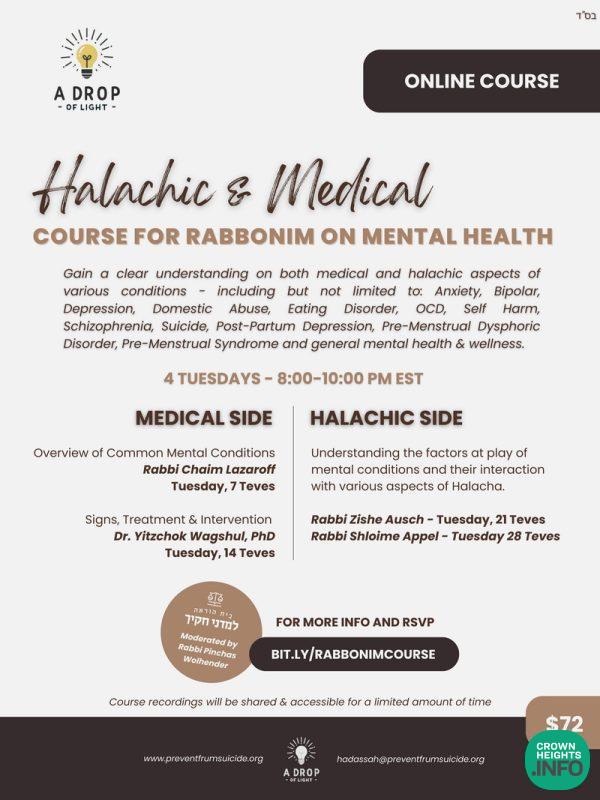
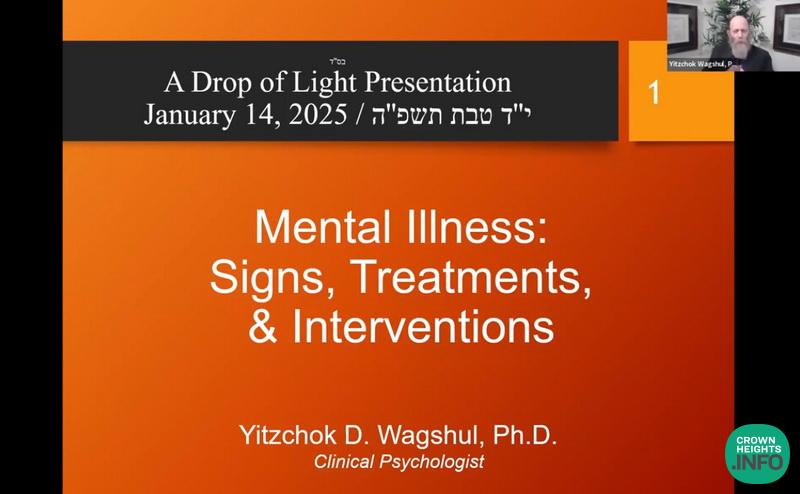
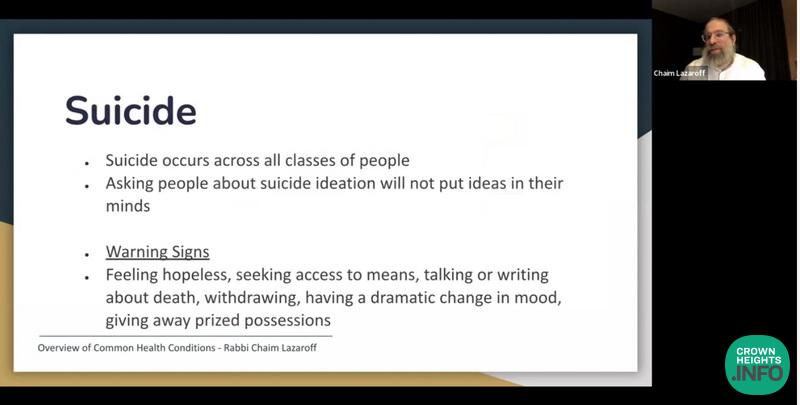
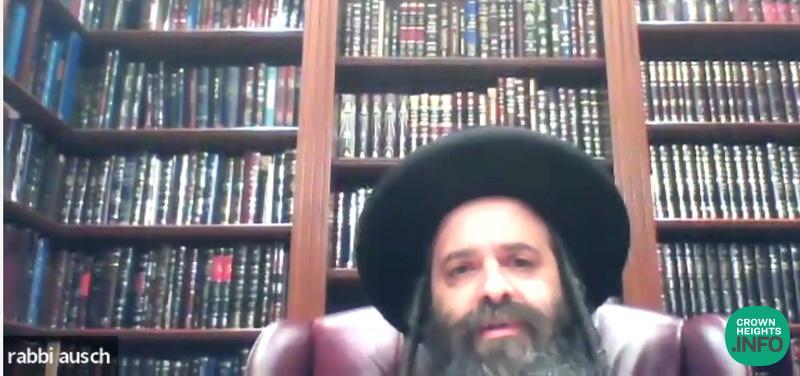
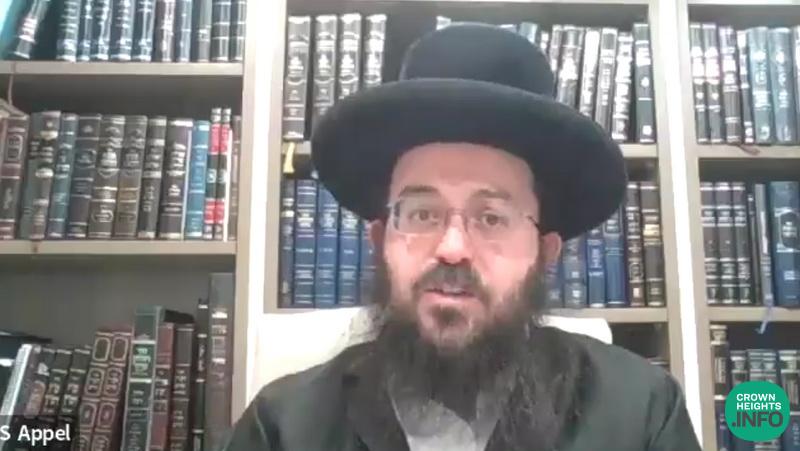
















G.Singh
Great program!
channi cohen
its a major problem in lubavitch
as someone once said nisht yeder lubavitcher is a meshugene ober yeder meshugene is a lubavitcher
yechi hameleh